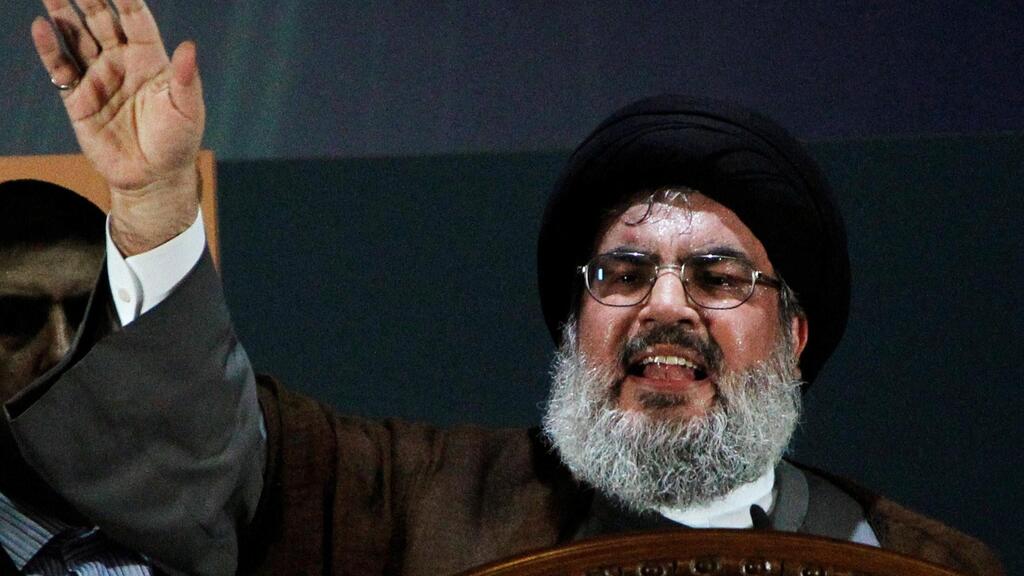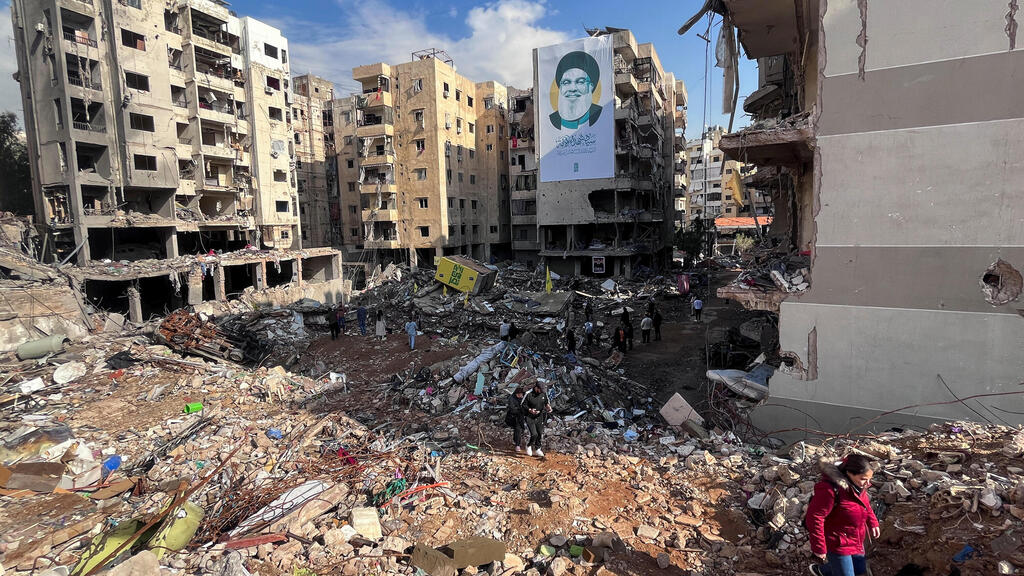A month into the cease-fire between Israel and Hezbollah, the Shiite terrorist organization is recalibrating its course and preparing for what’s next amid the heavy blows it sustained during the war. Among other matters, the terror group is deliberating where to bury its former leader Hassan Nasrallah, who was eliminated in September.
Senior Hezbollah officials who spoke with the London-based Arab outlet Asharq Al-Awsat outlined the organization's current priorities: holding a comprehensive assessment of the fighting with Israel, continuing investigations into the explosions of pagers and walkie-talkie devices that harmed thousands of its operatives and arranging funerals for Nasrallah and his cousin and apparent successor, Hashem Safieddine who was also eliminated shortly after.
According to the sources, Hezbollah is now focused on "internal reorganization" and rebuilding its political and organizational structure after losing dozens of prominent military, political and administrative figures during the war.
The officials noted that Hezbollah will carry out a thorough evaluation of the "previous political phase" to identify its mistakes in light of the geopolitical changes that took place in the Middle East over the past year.
They acknowledged that the terror organization "suffered a major blow" following its support for Gaza, culminating in the deaths of Nasrallah, Safieddine and top military commanders. They also stressed that the investigation into the pager explosions will continue "until the truth is revealed."
Discussions about Nasrallah's burial site have recently gained momentum. According to the officials, Hezbollah owns a plot of land along the old road leading to Beirut's Rafic Hariri International Airport, which it plans to convert into a memorial and burial site of its former secretary-general.
Earlier this month, the Lebanese newspaper Ad-Diyar reported that the exact location of the burial site remains undecided, as Hezbollah intends to construct a mausoleum for Nasrallah and Safieddine, similar to the one it built for former Hezbollah leader Abbas al-Musawi.
Former Mossad agents talk on pager operation on '60 Minutes'
(Video: CBS News)
The report mentioned three potential locations for the mausoleum — two in Beirut’s southern suburbs (Dahieh) and one along the old airport road. "The site will be chosen based on available space and its capacity to accommodate visitors," the report said.
Sources who spoke with Asharq Al-Awsat also addressed the cease-fire with Israel, saying that "throughout the cease-fire period, Hezbollah has acted with restraint and hasn’t allowed Israel to provoke it into renewing the war."
"The organization is leaving charge to Lebanese Parliament Speaker Nabih Berri, Prime Minister Najib Mikati and the army leadership to handle Israeli violations through the body overseeing the cease-fire,” they added.
Get the Ynetnews app on your smartphone: Google Play: https://bit.ly/4eJ37pE | Apple App Store: https://bit.ly/3ZL7iNv
Regarding the Syrian front and the fall of Bashar Assad's regime, Hezbollah sources claimed that the organization maintains a military and security presence along the hills of northern and eastern Beqaa.
The move was made to counter potential infiltration by groups affiliated with the Islamic State (ISIS) into these areas and from there into Shiite towns. "Hezbollah's presence in these areas continues, despite receiving assurances that ISIS-affiliated groups won’t enter the Shiite towns," they said.







